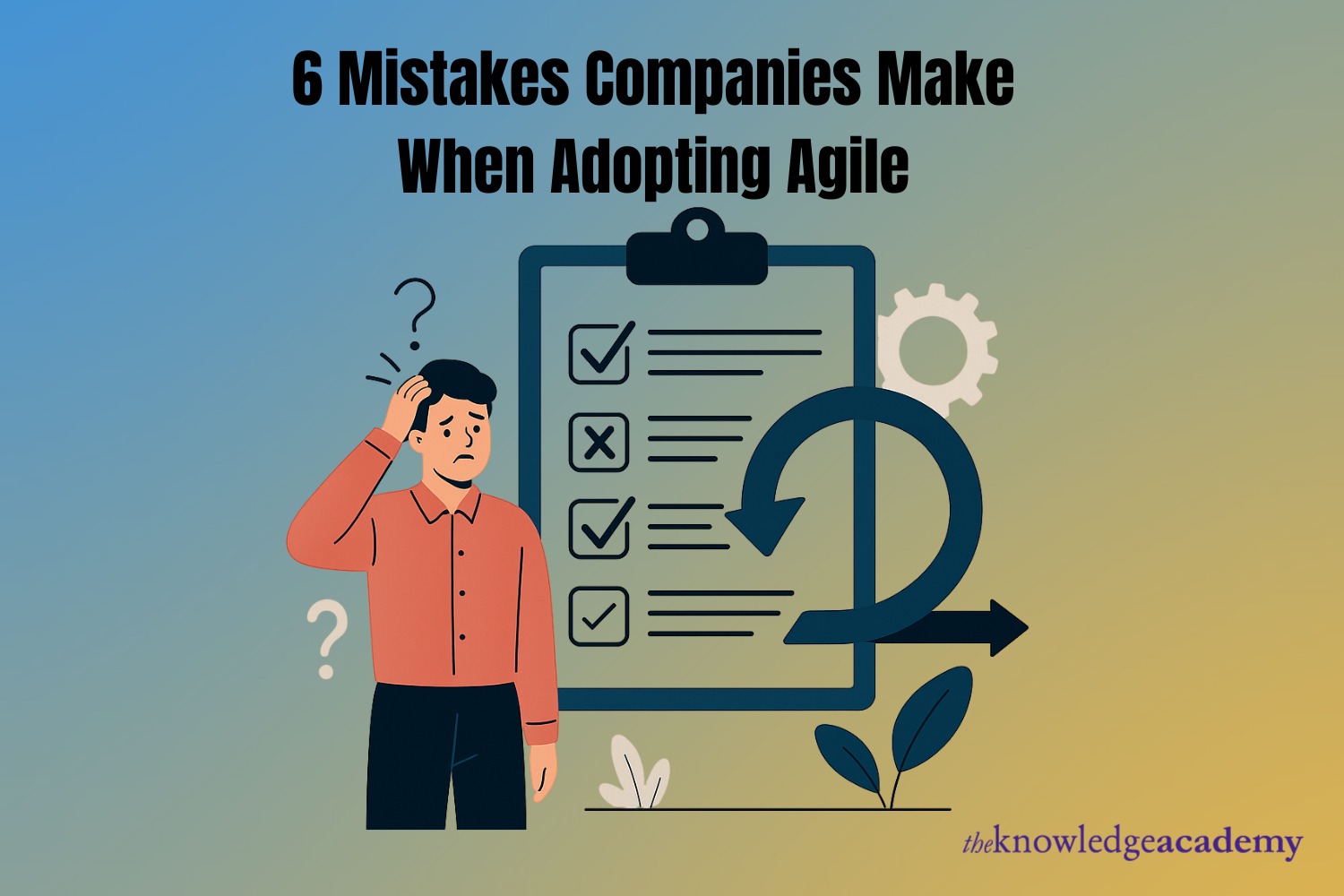6 Mistakes Companies Make When Adopting Agile

Agile is no longer just a buzzword. It is a proven approach that helps teams deliver faster, collaborate better and respond to change with ease. But adopting Agile is not as simple as flipping a switch. Many companies jump in without understanding the basics. That is where Agile Courses come in. They offer the foundation needed to succeed. Yet, some businesses skip this step and dive straight into Agile Tools, hoping they will do the heavy lifting. Spoiler alert: they won’t.
Let us explore the common mistakes companies make when embracing Agile and how to avoid them.
1. Skipping Proper Agile Instruction
Agile may appear straightforward: stand-ups and retrospectives, but it soon becomes complicated without the right training. Teams frequently adhere to the schedule without comprehending the rationale behind each task. This results in subpar performance and lost chances.
Teams that take Agile courses learn both the principles and the procedures. They describe the benefits of Agile and guide how to use it successfully. Without this basis, Agile stops being a mindset and instead becomes a checklist. Training creates the foundation for long-term success and boosts confidence.
2. Focusing Only on Tools Instead of Practices
The availability of Agile Tools is abundant. Asana, Jira, and Trello are well-liked options. However, a team is not Agile just because of its tools. They are intended to supplement the process, not to replace it.
Some businesses believe that purchasing software is sufficient for their needs. They avoid the difficult aspect, which is altering people’s methods. Agile emphasises teamwork, feedback, and ongoing education. Although they can be useful, tools are not the answer. Prioritise sound procedures before selecting tools that complement your process.
3. Ignoring the Role of Leadership
Agile isn’t only for programmers. Leadership must back it. Leaders direct the group and create the culture. The team finds it difficult to adhere to Agile principles if they don’t fully comprehend them.
Some leaders prioritise speed over process. Others kill autonomy by micromanaging. Agile succeed on empowerment and trust. Agile values must be modelled by leaders, who should also provide room for experimentation. Agile will not be successful without their support.
4. Failing to Adapt Agile to the Company Culture
Every business is unique. Agile is not a universally applicable answer. A large organisation might not benefit from what works for a startup. Agile methodologies must align with the business culture.
Some groups replicate frameworks without making any modifications. They disregard their requirements in favour of rigorously adhering to Scrum or Kanban. Resistance and subpar outcomes follow from this. Agile needs to be adaptable. Maintain the fundamentals while modifying the procedures to suit your setting.
5. Starting Too Big, Too Fast
Agile is fascinating. Businesses want to implement it globally as soon as they decide to do so. Agile, however, is most effective when implemented gradually.
Teams learn and adapt better when they start small. It lowers risk and increases momentum. Burnout and uncertainty are frequently the results of a hasty deployment. Start with a pilot group. Allow them to try new things and share their achievements. Then gradually expand.
6. Not Measuring Progress and Outcomes
Delivering value is the goal of Agile. However, many teams do not track their development. They do sprints, but they do not track the results. Improvement is difficult without metrics.
Feedback is crucial for teams to grow and develop. Data is necessary for leaders to make decisions. Agile promotes introspection, but it needs to be supported by outcomes. Monitor team morale, customer happiness, and delivery speed. To maintain alignment and make constant progress, review frequently.
Conclusion
Agile can transform how companies work. But only if it is done right. Avoiding these mistakes is the first step. Whether you are just starting or refining your approach, learning from experts makes a difference. That is where The Knowledge Academy comes in. Their expert-led Agile courses help teams build real skills, not just follow trends. With the right guidance, Agile becomes more than a method. It becomes a mindset.



